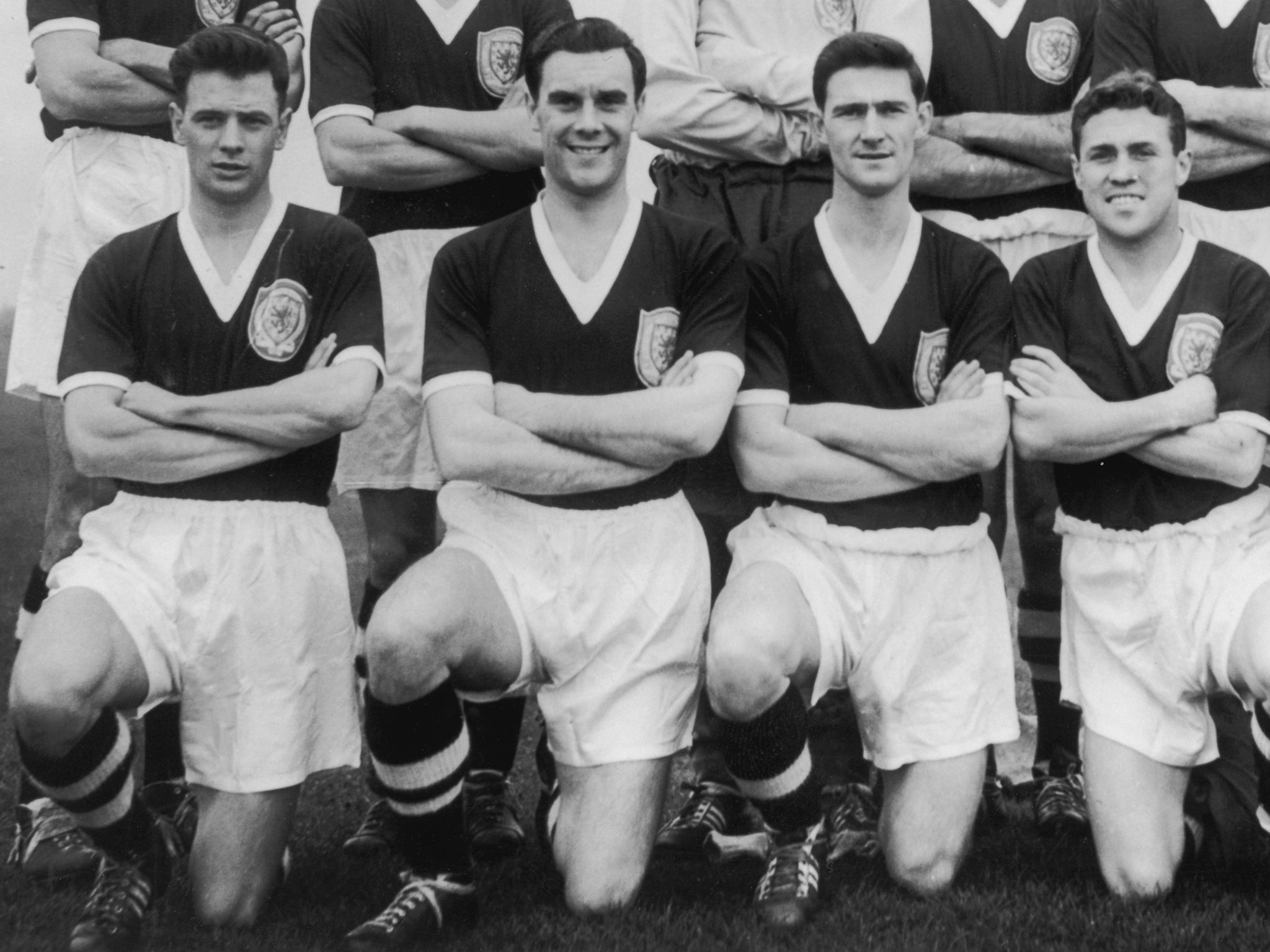Graham Leggat: Entertaining forward who played in the 1958 World Cup and once scored a three-minute hat-trick
In 1971 Leggat emigrated to Canada, working as player-manager of Toronto Metros before forging a new career as a broadcaster, covering World Cups and Olympics and becoming one of the best-known faces on Canadian screens

Graham Leggat was one of the most entertaining footballers of his generation, a dashing, prolific and versatile sharpshooter with Aberdeen, Fulham and Scotland in the middle years of the 20th century. Mere statistics rarely reflect a performer's true glory, but in Leggat's case they do make persuasive reading.
For his home-town club, the Dons of Pittodrie, for whom he starred as they won the League championship and the League Cup in consecutive seasons, he scored 92 goals in 151 games over five campaigns from 1953-54, almost all while operating on the right wing. For Fulham, with whom he excelled as they rose to the top flight of the English game in 1958-59, then in serial successful battles against relegation through to 1966-67, he contributed 134 goals in 280 appearances while filling all five attacking roles.
While collecting 18 caps for Scotland he also scored eight times, including one on his debut in a 1-1 draw with England in front of 132,000 at Hampden Park in April 1956. Add the three together and it makes 234 in 449 matches, better than a goal every two games, a remarkable ratio for any forward, particularly one not regularly deployed as the spearhead of his side.
Having been signed by Aberdeen from junior club Banks O'Dee as a 17-year-old, Leggat played only twice for the reserves before manager Dave Halliday called him into the first team, where he was quick to become a regular. That season he shone as the Dons reached the final of the Scottish Cup, which they lost to Celtic, but soon they tasted triumph as 1954-55 League champions, and he fitted productively into a forward line which also featured inside men Harry Yorston and Bobby Wishart, centre-forward Paddy Buckley and left-winger Jack Hather.
Leggat rose to new heights in 1955-56, top-scoring with 29 goals as Aberdeen finished runners-up to Rangers and lifted the League Cup, with the wide man netting in the 2-1 final victory over St Mirren. He headed the Pittodrie goal charts again in 1956-57, then started the following season with a five-strike salvo in a 6-2 win at Airdrie, only for his momentum to be halted temporarily by a broken leg.
By the spring he had bounced back to his best, a strong, pacy, exceedingly skilful performer, brave and brimming with determination, a natural target for leading English clubs. Therefore it was something of a surprise when, after featuring for Scotland in the 1958 World Cup finals in Sweden, Leggat was recruited by Second Division Fulham for a £16,000 fee which seemed paltry for such a high achiever.
The newcomer, still only 24, took the surest way into the hearts of the Craven Cottage faithful by scoring on his debut, in a 6-1 home victory over Stoke City, and in each of his next five games, all of which were won. Meshing delightfully with fellow attackers Maurice Cook, Trevor “Tosh” Chamberlain and especially the exquisitely gifted inside-forward Johnny Haynes, Leggat dazzled as Fulham were promoted as runners-up to Sheffield Wednesday.
Sometimes deployed as a centre-forward by manager Bedford Jezzard, the Aberdonian was top scorer with 20 goals as the Londoners finished in mid-table in 1959-60, but then began a sequence of seven nerve-jangling brushes with demotion which might have depressed many an individual but which appeared to bring the best out of the resilient Leggat.
Along the way he plundered eight hat-tricks, including one in three minutes against Ipswich Town at Craven Cottage on Boxing Day 1963, a contest in which he scored four times and which the uncharacteristically dominant hosts won 10-1. Astonishingly, two days later in the Portman Road return, the East Anglians prevailed 4-2, although Leggat was again on target for Fulham.
It appeared he had a liking for yuletide: in 1966, having reached the veteran stage and been dropped by manager Vic Buckingham, he was brought back for two games at centre-forward and scored five, a hat-trick against Leicester and a brace against Stoke. His reward, only a few days later, was to be transferred to Birmingham City of the Second Division, a transaction viewed with horror by many of his long-time fans.
With Leggat gone, Fulham were finally relegated in 1967-68. Meanwhile the Scot never settled at St Andrew's, nor with Third Division Rotherham United, whom he joined in July 1968, and after one season at Millmoor he embarked on a short spell of coaching youngsters for Aston Villa, then turned out briefly for non-League Bromsgrove Rovers.
In 1971 Leggat emigrated to Canada, working as player-manager of Toronto Metros before forging a new career as a broadcaster, covering World Cups and Olympics and becoming one of the best-known faces on Canadian screens.
Graham Leggat, footballer and broadcaster: born Aberdeen 20 June 1934; played for Aberdeen 1953-58, Fulham 1958-67, Birmingham City 1967-68, Rotherham United 1968-69; capped 18 times by Scotland 1956-60; died Canada 28 August 2015.
Subscribe to Independent Premium to bookmark this article
Want to bookmark your favourite articles and stories to read or reference later? Start your Independent Premium subscription today.

Join our commenting forum
Join thought-provoking conversations, follow other Independent readers and see their replies